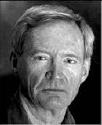
This is an important search with disappointing results. Scales Brookings got right to it. Here is what you were looking for, a *very* important contribution by an extremely intelligent and focused officer.

The Next Generation of Small Unit Warfare [NOTES]
A Lunch Discussion with Major General (ret.) Robert H. Scales, PhD
Monday, September 27, 2010, 12:00 pm — 1:30 pm
The Brookings Institution, Stein Room, 1775 Massachusetts Ave, NW, Washington, DC
The 21st Century American military it has found itself fighting two extended land wars, neither against a nation state or conventional armed forces. Our forces have responded to with changes in doctrine, and the introduction of new technologies to the integration of new human resources in the form of contractors, translators, and human terrain experts. But where will we go from here? In his recent work, Scales has focused on how changes in selection, training, and organization might make future small units not only more powerful, but also the backbone of our operations.
Major General (ret.) Robert H. Scales is an authority on both land warfare and leadership development. Prior to his current position, as President of Colgen, LP, he served for over thirty years in the Army, in command and staff positions in the United States, Germany, and Korea. Scales ended his military career as the Commandant of the United States Army War College. In 1995 he created the Army After Next program which was the Army’s first attempt to build a strategic gaming and operational concept for future land warfare. He has written three works: Future Warfare, Yellow Smoke: the Future of Land Warfare for America’s Military, and The Iraq War: A Military History. He is a graduate of West Point and holds a PhD in History from Duke University.
See Also: Review: Firepower In Limited War
Inspired by Attending this Briefing:
Journal: Reflections on Integrity
Dr. Peter W. Singer, Director of the 21st Century Defense Initiative at Brookings, will introduce and moderate the discussion.
It’s that time again. About once a decade, the military services attempt to reform how they educate officers. This time, the catalyst is a series of Senate and House hearings on how well the services educate officers. The Defense Science Board will begin a study on military education reform soon. The defense intellectual blogosphere is electric with calls for reform. Other creative ideas for reform will follow in the coming days. And all will fail. . . . . . . . The Skelton reforms have shown that often legislation is the only sure way to achieve what cultural friction cannot overcome. To be sure, no effort as culturally disruptive as this can be implemented quickly. At least five years would be needed to get it off the ground, and more than a decade would pass before SSP-qualified officers would advance to positions of authority. But if we are to create a body of gifted officers capable of dealing with the complexities of modern warfare, we soon must begin to break the stranglehold of the service personnel systems and offer the proper rewards to those young, talented and ambitious officers who are most gifted in the strategic art. AFJ

Flagged by Marcus Aurelius. Bing West, former Marine and former Assistant Secretary of Defense for International Security Affairs during the Reagan Administration, has put some straight-forwawrd words into the Small Wars Journal with a bottom-line that has been known to all of us for decades, but merits repetition over and over again until we finally restore integrity to the national security decision-making process.
Our soldiers only get a small number of chances to engage the enemy. Our battalions average one arrest every two months, and one platoon-sized patrol per day per company that infrequently makes solid contact. On average, a US rifleman will glimpse a Taliban once a month.
Continue reading “Journal: Bing West on Futility of the Grunt War in Afghanistan”